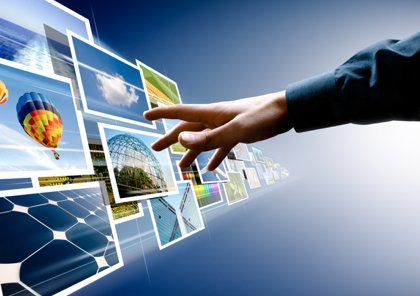Introduction
Technology has revolutionized the way we travel, transforming every aspect of the journey from planning and booking to navigating and experiencing new destinations. Innovations in digital tools and platforms have made travel more accessible, efficient, and personalized than ever before. This article explores how technology has reshaped modern travel, highlighting key advancements and their impact on the travel experience.
1. The Evolution of Booking Platforms
a. Online Travel Agencies (OTAs)
- Growth and Convenience: Online travel agencies like Expedia, Booking.com, and TripAdvisor have revolutionized the booking process by offering a one-stop-shop for flights, accommodations, and activities. These platforms provide travelers with the ability to compare prices, read reviews, and make reservations from the comfort of their homes.
- Personalization: Advanced algorithms and machine learning enable OTAs to offer personalized recommendations based on user preferences and past behaviors. This level of personalization enhances the booking experience by suggesting tailored options for accommodations, activities, and even dining.
b. Mobile Apps and Travel Aggregators
- Streamlined Booking: Mobile apps such as Skyscanner and Kayak aggregate travel options and allow users to book flights, hotels, and car rentals directly from their smartphones. The convenience of mobile booking has made travel planning more flexible and accessible, especially for last-minute trips.
- Integrated Services: Apps like Google Travel integrate multiple services into a single platform, offering itinerary management, real-time flight updates, and local recommendations. This integration simplifies the travel experience by centralizing essential information.
2. Advances in Navigation and Transportation
a. GPS and Mapping Applications
- Real-Time Navigation: GPS technology and mapping apps like Google Maps and Waze have transformed navigation, providing real-time directions, traffic updates, and alternative routes. These tools help travelers efficiently navigate unfamiliar cities and avoid congestion.
- Offline Maps: Apps that offer offline map functionality, such as Maps.me, enable travelers to access navigation tools without needing a constant internet connection. This feature is especially useful in remote areas where connectivity may be limited.
b. Ride-Sharing and Public Transit Apps
- Convenience and Accessibility: Ride-sharing services like Uber and Lyft have changed urban transportation by offering on-demand rides at the touch of a button. These services provide travelers with convenient and often cost-effective transportation options.
- Public Transit Integration: Apps like Citymapper and Transit offer comprehensive information on public transportation systems, including schedules, routes, and fare details. This integration makes it easier for travelers to navigate public transit networks in unfamiliar cities.
3. Enhanced Travel Experiences through Technology
a. Virtual Reality (VR) and Augmented Reality (AR)
- Virtual Tours: VR technology allows users to explore destinations and attractions virtually before committing to a visit. Platforms like Oculus provide immersive experiences that can help travelers decide on their next destination.
- AR Enhancements: AR apps enhance the travel experience by overlaying digital information onto the physical world. For example, AR navigation apps can provide real-time information about landmarks and points of interest as travelers explore new cities.
b. Smart Technology in Accommodations
- Smart Rooms: Many modern hotels and accommodations are equipped with smart technology, including voice-activated controls, smart thermostats, and automated lighting. These features enhance comfort and convenience for travelers.
- Personalized Stays: Technology enables hotels to offer personalized experiences based on guest preferences, such as customized room settings and tailored recommendations for local attractions.

4. Safety and Security Innovations
a. Real-Time Alerts and Emergency Services
- Travel Safety Apps: Apps like TripIt and SmartTraveler provide real-time alerts on travel disruptions, safety concerns, and emergency information. These tools help travelers stay informed and make necessary adjustments to their plans.
- Emergency Assistance: Services like Global Rescue offer 24/7 emergency assistance, including medical evacuation and travel insurance support. These services provide peace of mind and ensure travelers are well-supported in case of emergencies.
b. Contactless Technologies
- Health and Safety: In response to the COVID-19 pandemic, contactless technologies such as digital check-ins and mobile payment systems have become more prevalent. These technologies help reduce physical contact and enhance hygiene during travel.
5. Future Trends in Travel Technology
a. Artificial Intelligence (AI) and Machine Learning
- Predictive Analytics: AI and machine learning are poised to further personalize travel experiences by predicting user preferences and offering highly tailored recommendations. These technologies will continue to enhance the efficiency and accuracy of travel planning.
- Chatbots and Virtual Assistants: AI-powered chatbots and virtual assistants are becoming more sophisticated, providing instant customer support and assisting with travel-related inquiries. These tools streamline communication and improve the overall travel experience.
b. Blockchain Technology
- Secure Transactions: Blockchain technology has the potential to enhance security and transparency in travel transactions, including booking and payment processes. This technology can reduce fraud and streamline administrative tasks.
Conclusion
Technology has significantly transformed the travel industry, making it more accessible, efficient, and enjoyable. From the evolution of booking platforms and navigation tools to the enhancement of travel experiences through VR and AR, technological advancements continue to shape the way we explore the world. As technology continues to evolve, travelers can expect even more innovative solutions that enhance convenience, safety, and personalization in their journeys.









